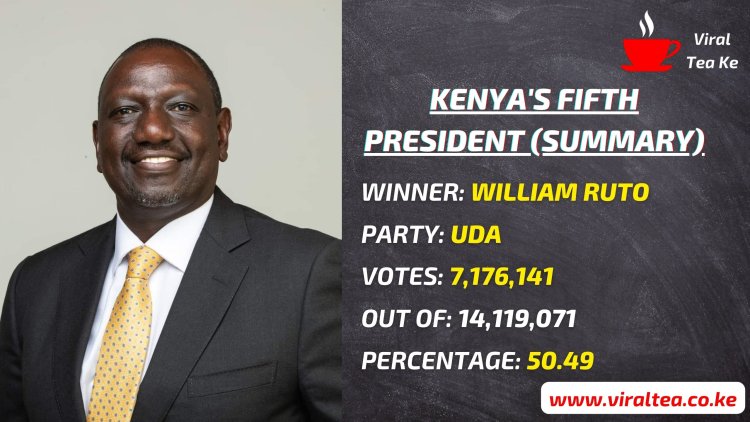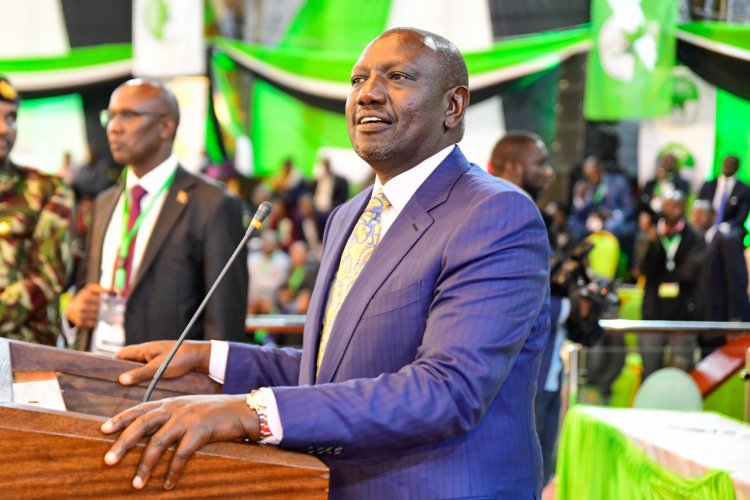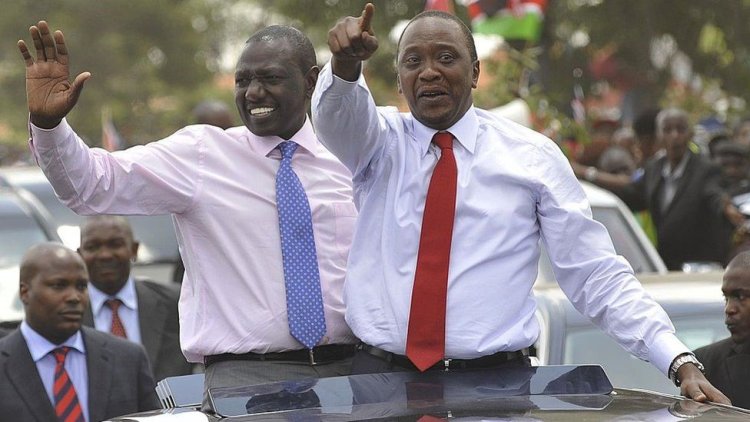William Ruto: From Selling Chicken To Becoming Kenya's Fifth President
But what is the story of the man who has stood the test of time to become what Kenyans now call "WSR the 5th?"

President-elect, William Ruto brought an end to an era whereby his competitor, Azimio la Umoja's Raila Odinga, was a known political figure alongside the Kenyatta regime consisting of the late Mzee Jomo Kenyatta and outgoing President Uhuru Kenyatta.
He was on Monday, August 15 declared the country's fifth head of state by Independent Electoral and Boundaries Commission (IEBC) chairman, Wafula Chebukati, capping off an impressive run in the elections.
Over 30 years of his political career have been wrapped into the ultimate moment for the humble man who rose from selling chicken by the roadside to rising to occupy State House, the highest house in the land.
But what is the story of the man who has stood the test of time to become what Kenyans now call "WSR the 5th?"

William Ruto speaking after he was elected President on August 15, 2022. /WILLIAM RUTO
Profile & History
William Samoei Ruto was born in Sugoi, Uasin Gishu County on December 21, 1966. He went to Kamagut Primary School then he joined Wareng Secondary School, followed by Kapsabet Boys High School for his A levels.
He joined the University of Nairobi where he graduated with a Bachelor of Science in Botany and Zoology in 1990. He returned to the same university years later and graduated with a Master of Science degree in 2011 and a PhD in 2018.
He went to primary school barefoot, wearing his first pair of shoes at the age of 15. He also sold chicken and groundnuts by the roadside in rural areas of the Rift Valley.
Before he thrust himself into the political age, President-elect Ruto worked as a teacher for two years before crossing into the murky world of Kenya's politics.
He was a co-founder and key member of the infamous Youth for Kanu 1992 (YK92), a lobby group that campaigned for late President Daniel Moi in the 1992 general elections. Earlier, he had met Moi, his political mentor, through his involvement in church activities.
He was first elected to Parliament in 1997 as an MP for Eldoret North. The manner in which he was elected offered Kenyans a sign of things to come as he stunned then-incumbent Reuben Chesire.
Ruto then served as an assistant minister in the Office of the President from 1998 to 2002 when he was elevated to cabinet as Minister for Home Affairs following the sacking of George Saitoti by Moi after disagreements over the 2002 succession.
He has also served as Minister for Agriculture and Higher Education.
Ruto Meets Uhuru
Ruto had supported Uhuru Kenyatta in his presidential bid in 2002 under the KANU party, which sought to overcome Mwai Kibaki's NARC coalition, which comprised Raila Odinga, Kalonzo Musyoka among others. Despite eventually losing the election to the NARC coalition, Ruto retained his seat as an MP.
In 2005, he teamed up with Raila to form the pentagon which opposed the constitutional referendum under the No Movement. At the time, he had already gathered momentum within his stronghold in the Rift Valley as he asked Kenyans to oppose the proposed changes in the Constitution, which was pivotal in ODM's eventual victory.
In 2006, Ruto declared that he would vie for the presidency in 2007, but some officials in the KANU party had disputed his decision. He wanted to be ODM's presidential flagbearer but lost to Raila (2,656 votes), coming in third place with 368 votes after the party's delegates post their ballots. Ruto vowed his support for Raila in the 2007 polls, which led to a presidential election riddled with controversy and eventually chaos.
The late Mwai Kibaki, who was re-elected as the President, formed a grand coalition government with the opposition leader, Raila Odinga, in a bid to quell the tension that had rocked the country.
Ruto has served as Kenya’s deputy president since 2013 when he was elected as President Uhuru Kenyatta’s running mate.
President For Now & ICC
In October 2014, he got his eventual first taste as a Head of State as acting President when Kenyatta briefly relinquished power to attend to his criminal case at the International Criminal Court (ICC) in The Hague, Netherlands. Kenyatta's charges were later dropped.
In 2011, he was named among the six individuals who planned and sponsored the 2007/08 post-election violence in which 1,200 people were killed and many others displaced following a disputed presidential election.

William Ruto and Uhuru Kenyatta. /BBC
Ruto was charged alongside journalist Joshua Arap Sang with crimes against humanity (murder, deportation or forcible transfer of population and persecution) during the violence that followed the 2007 elections. The trial of Ruto and Sang opened on September 10, 2013.
Ruto's case at the ICC also collapsed in 2016. At the time, the court ruled there was insufficient evidence after crucial witnesses withdrew.
Ruto also served as the Minister for Agriculture in 2010, before he was moved to the Ministry of Education in April 2010. A year later, Ruto was fired.
In 2013, Ruto's United Republican Party (URP) then joined Uhuru Kenyatta's The National Alliance (TNA) to form the Jubilee alliance. The alliance went on to win subsequent elections in 2013 and 2017.
Past the 2017 elections, the handshake between Uhuru Kenyatta and Raila Odinga forced Ruto to decamp to form the United Democratic Alliance (UDA), which has since gone to top the 2022 general elections.






